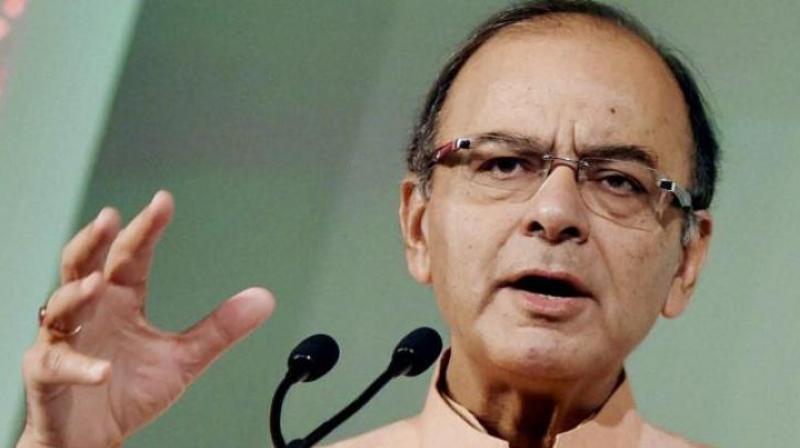Economic Survey: Direct dole to cost 5 per cent of GDP
Eco survey states UBI that reduces poverty to 0.5 per cent would cost 4-5 per cent of GDP.

New Delhi: The Economic Survey has propelled the Universal Basic Income (UBI) as an alternative to various social welfare schemes in a bid to reduce poverty. It has described UBI as a “powerful idea” which should be taken serious note of.
“The UBI is a powerful idea whose time even if not ripe for implementation is ripe for serious discussion,” said the Economic Survey for 2016-17, which was tabled in Parliament by finance minister Arun Jaitley on Tuesday.
Stating that the Mahatma would have anxieties about UBI as being just another add-on government programme, but on balance may have given the go-ahead, the Economic Survey pointed out that the two pre-requisites for its success are functional JAM (Jan Dhan, Aadhaar and Mobile) system and Centre-state negotiations on cost sharing for the programme.
The Survey estimated that a UBI that reduces poverty to 0.5 per cent would cost 4-5 per cent of GDP, assuming that those in the top 25 per cent income bracket are not part of it.
“On the other hand, the existing middle class subsidies and food, petroleum and fertiliser subsidies cost about three per cent of GDP,” it noted.
Observing that UBI, based on principles of universality, unconditionality and agency, is a conceptually appealing idea, the Survey spoke also of implementation challenges.
Citing a survey on mis-allocation of resources for the six largest central sectors and centrally sponsored sub-schemes (except PDS and fertiliser subsidy) across districts, the Economic Survey pointed out that the districts with most requirements are precisely the ones where state capacity is the weakest.
Finland has started experimenting with this concept and others are likely to follow suit. Last year, voters in Switzerland turned down a proposal that mentions such a universal basic income.

